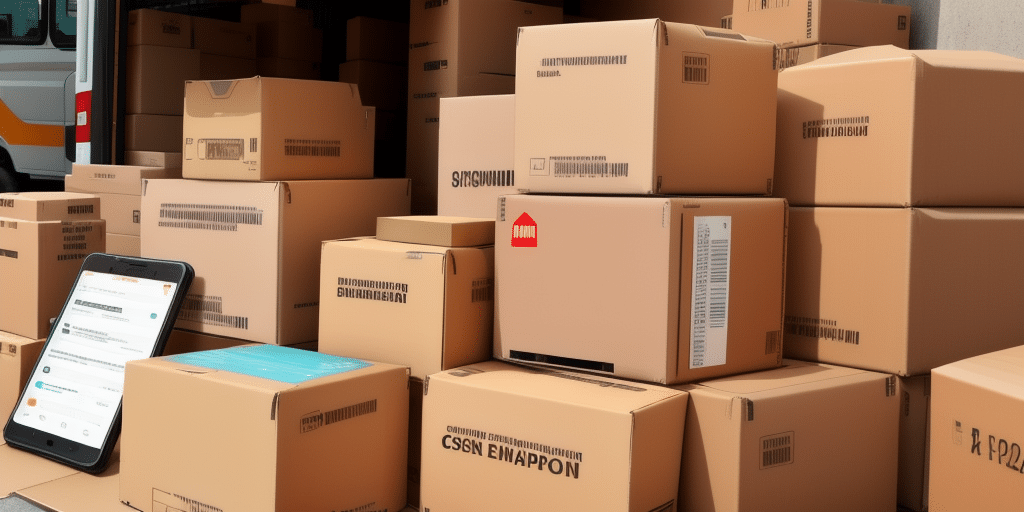Introduction to Shipment Exceptions
In the logistics and shipping industry, ensuring timely and accurate deliveries is paramount. However, despite meticulous planning, shipment exceptions can occur, disrupting the supply chain and affecting both businesses and customers. A shipment exception refers to any unexpected event that delays or alters the transportation of goods, leading to issues such as delivery delays, lost packages, or damaged goods. Understanding the nature of shipment exceptions, their causes, and effective management strategies is essential for minimizing their impact and maintaining customer satisfaction.
Types of Shipment Exceptions
Delivery Delays
Delivery delays are among the most common shipment exceptions. They can result from various factors, including extreme weather conditions, transportation strikes, or logistical challenges within the carrier's network. For instance, the U.S. Department of Transportation reports that severe weather events account for a significant percentage of delivery disruptions annually.
Incorrect Shipping Information
Errors in shipping details, such as incorrect addresses or contact information, can lead to packages being misrouted or returned to the sender. Ensuring the accuracy of shipping information at the point of order placement is crucial in preventing such exceptions.
Lost or Damaged Packages
Despite advancements in tracking technologies, packages can still be lost or damaged during transit. According to a report by the American Express Business Insights, damaged shipments account for a notable percentage of customer complaints in the e-commerce sector.
Customs and Regulatory Issues
International shipments may encounter customs-related exceptions, such as delays in clearance or additional inspections. Navigating the complex landscape of international shipping regulations is essential to mitigate these challenges.
Causes of Shipment Exceptions
External Factors
External factors like natural disasters, political unrest, or global pandemics can severely disrupt shipping operations. The COVID-19 pandemic, for example, led to widespread delays and backlogs in global shipping networks.
Internal Operational Issues
Operational inefficiencies within logistics companies, such as inadequate inventory management or lack of coordination among different departments, can contribute to shipment exceptions.
Poor Packaging Practices
Improper packaging can result in damage during transit. Using high-quality packaging materials and adhering to best practices in packing can significantly reduce the risk of damaged goods.
Preventing Shipment Exceptions
Implementing Advanced Tracking Systems
Utilizing real-time tracking systems allows businesses to monitor shipments continuously, enabling proactive responses to potential delays. According to the Inbound Logistics, businesses that adopt advanced tracking technologies experience fewer shipment exceptions.
Enhancing Data Accuracy
Ensuring the accuracy of shipping information through automated data validation tools can minimize errors related to incorrect addresses and contact details.
Partnering with Reliable Carriers
Collaborating with reputable and dependable carriers reduces the likelihood of shipment exceptions. It's vital to assess carriers based on their performance metrics and reliability records.
Training and Development
Providing regular training to staff on best practices in packaging, handling, and shipping processes ensures that all team members are equipped to prevent and address shipment exceptions effectively.
Handling Shipment Exceptions
Immediate Response Strategies
Upon identifying a shipment exception, prompt action is necessary. This may involve contacting the carrier to locate a lost package or initiating a claim for damaged goods. Maintaining clear communication channels with carriers facilitates swift resolution.
Customer Communication
Keeping customers informed about the status of their shipments fosters trust and transparency. Providing timely updates and offering solutions, such as expedited shipping or refunds, can mitigate customer dissatisfaction.
Documentation and Record-Keeping
Maintaining detailed records of shipment exceptions, including the nature of the issue and the steps taken to resolve it, helps in analyzing patterns and preventing future occurrences.
Impact of Shipment Exceptions on Business and Customers
Shipment exceptions can have far-reaching effects on both businesses and their customers. For businesses, exceptions can lead to increased operational costs, loss of revenue, and potential damage to the brand's reputation. Customers experiencing delays or receiving damaged goods may lose trust in the company's reliability, leading to decreased customer loyalty and negative reviews.
According to a study by Blue Cross Blue Shield, companies that effectively manage shipment exceptions observe higher customer satisfaction rates and improved retention metrics.
Best Practices for Managing and Reducing Shipment Exceptions
- Invest in Robust Shipping Software: Utilizing comprehensive shipping software can streamline operations and reduce the likelihood of errors.
- Regularly Review Carrier Performance: Assessing carrier performance through key metrics helps in selecting the most reliable partners.
- Implement Quality Control Checks: Conducting thorough quality checks before dispatch ensures that shipments are correctly packaged and labeled.
- Establish Clear Communication Protocols: Defining clear communication channels within the team and with carriers facilitates efficient issue resolution.
- Continuously Train Staff: Ongoing training programs keep the team updated on best practices and new technologies in shipping and logistics.
Leveraging Technology to Manage Shipment Exceptions
Advancements in technology offer numerous tools to help manage and mitigate shipment exceptions. Automated shipping software can optimize routes, predict potential delays, and provide real-time tracking updates. Additionally, machine learning algorithms can analyze historical data to predict and prevent future shipment issues.
Integrating Internet of Things (IoT) devices in shipping processes allows for enhanced monitoring of goods in transit, ensuring that any deviations from the planned route or unexpected events are detected promptly.
Conclusion
Shipment exceptions present significant challenges in the logistics and shipping industry, impacting both businesses and their customers. By understanding the types and causes of shipment exceptions, implementing preventive measures, and leveraging technology, companies can effectively manage and reduce these occurrences. Prioritizing accurate data management, reliable carrier partnerships, and transparent communication fosters a resilient supply chain, ensuring customer satisfaction and sustaining business growth.






















